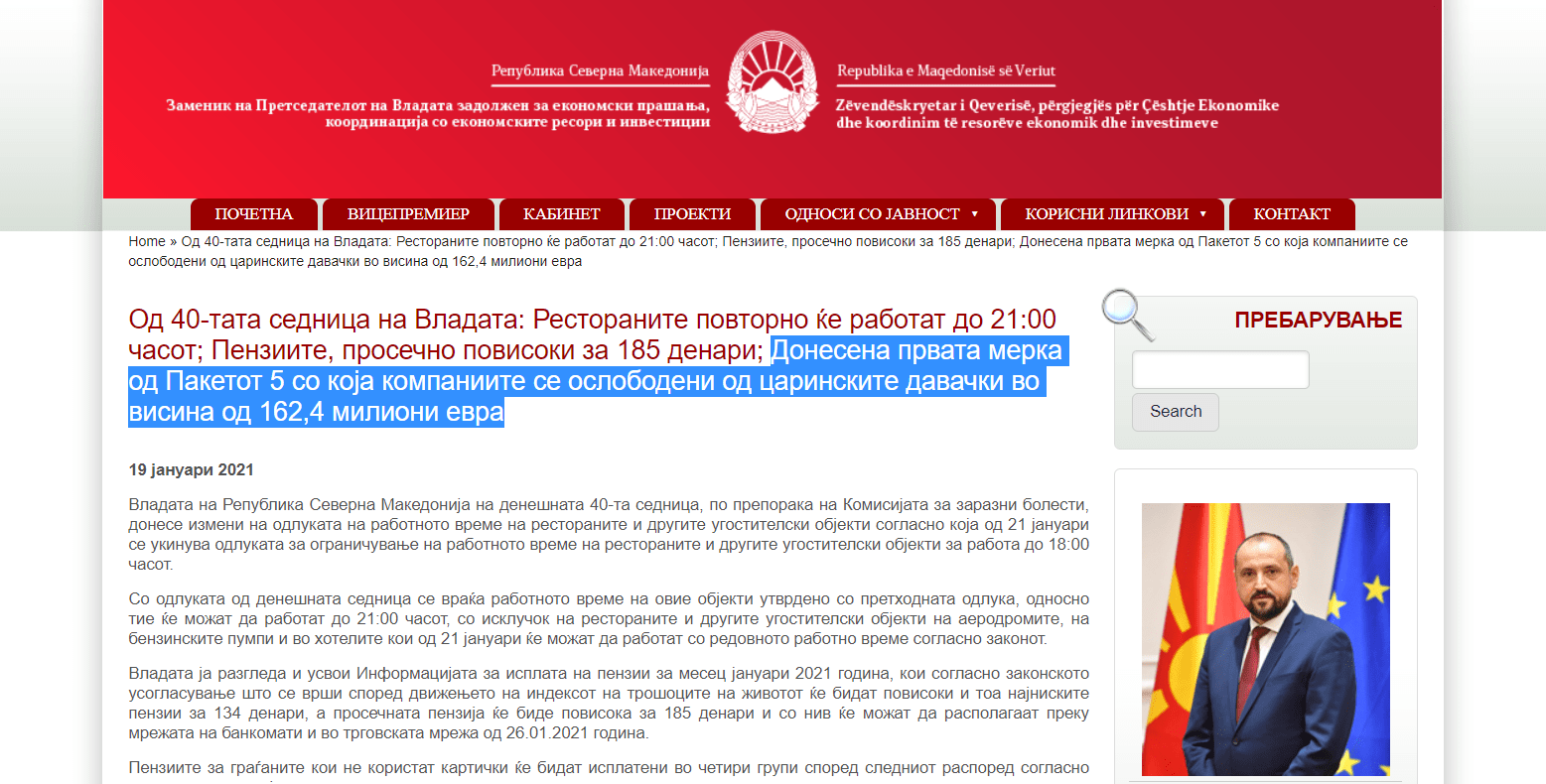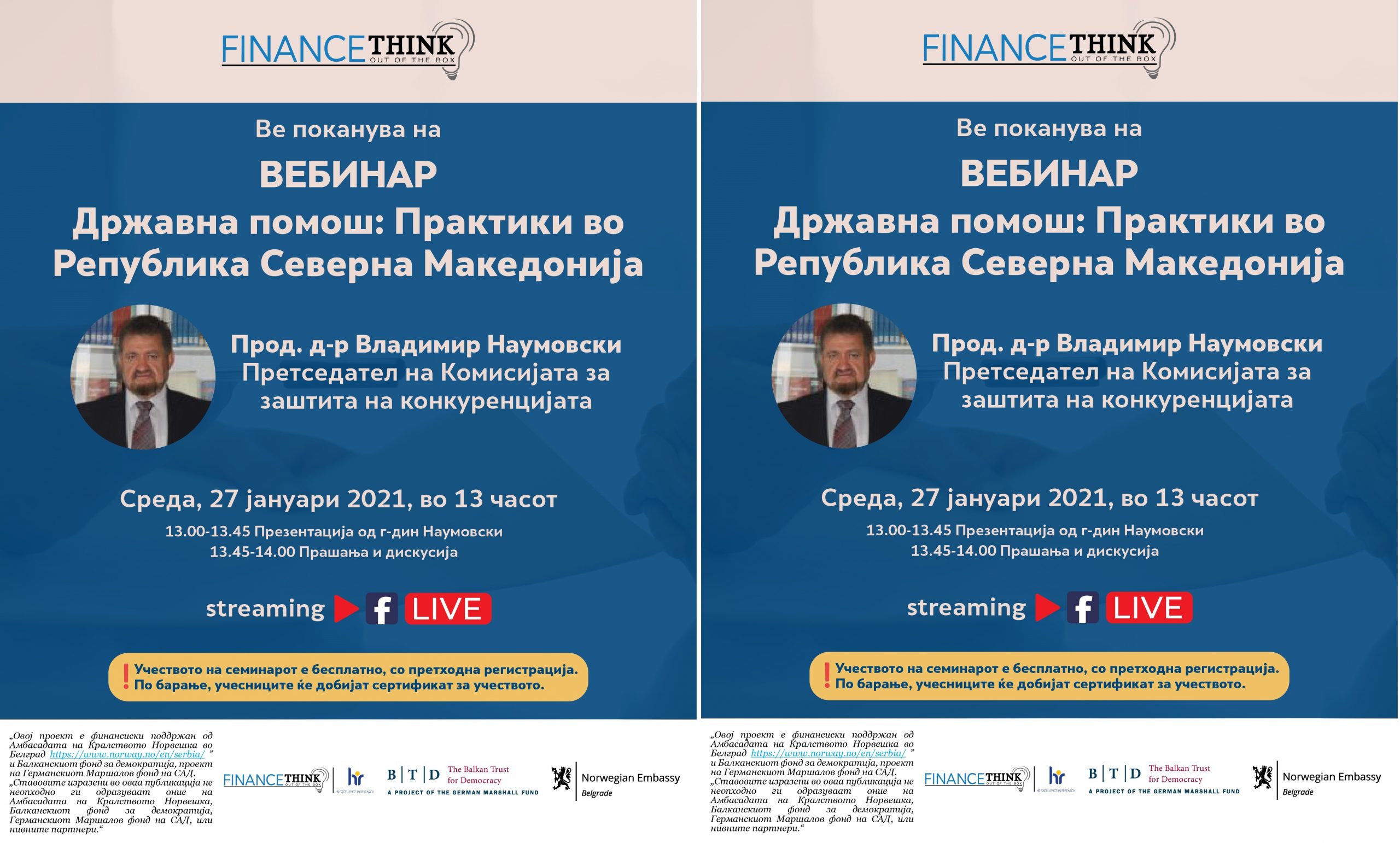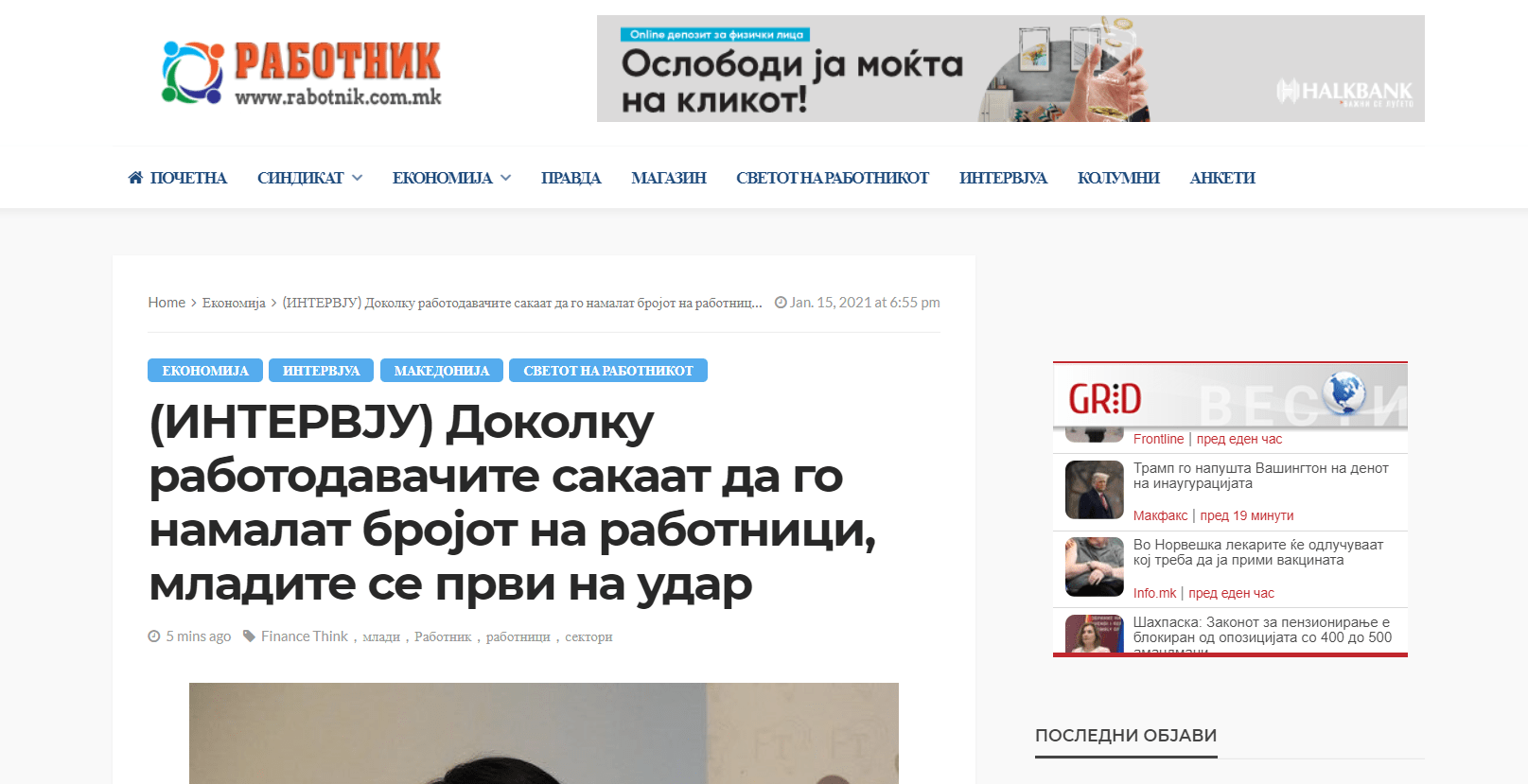Statement: „The unemployed do not meet the needs of employers due to lack of necessary skills“
Statement: „What effect will the abolition of 71 import duties have?“
Our recommendation taken forward by the government
The recommendation from our recent Policy Study 33: The potential of export-oriented companies to contribute to post-Covid-19 economic recovery in North Macedonia has been in line with the today’s adopted measure by the Government to temporarily cut import tariffs on key raw materials and equipment, as a measure to support companies’ post-Covid-19 recovery.
Statement: „The number of unemployed is growing – How many people lost their jobs due to the pandemic?“
We invite you to the first in a series of state aid webinars
Prof. Dr. Vladimir Naumovski will hold a webinar on “State Aid: Practices in North Macedonia” on January 27, 2021 at 1 p.m. Sign up here: forms.gle/U8HjRhjAnrXVQcaM7








